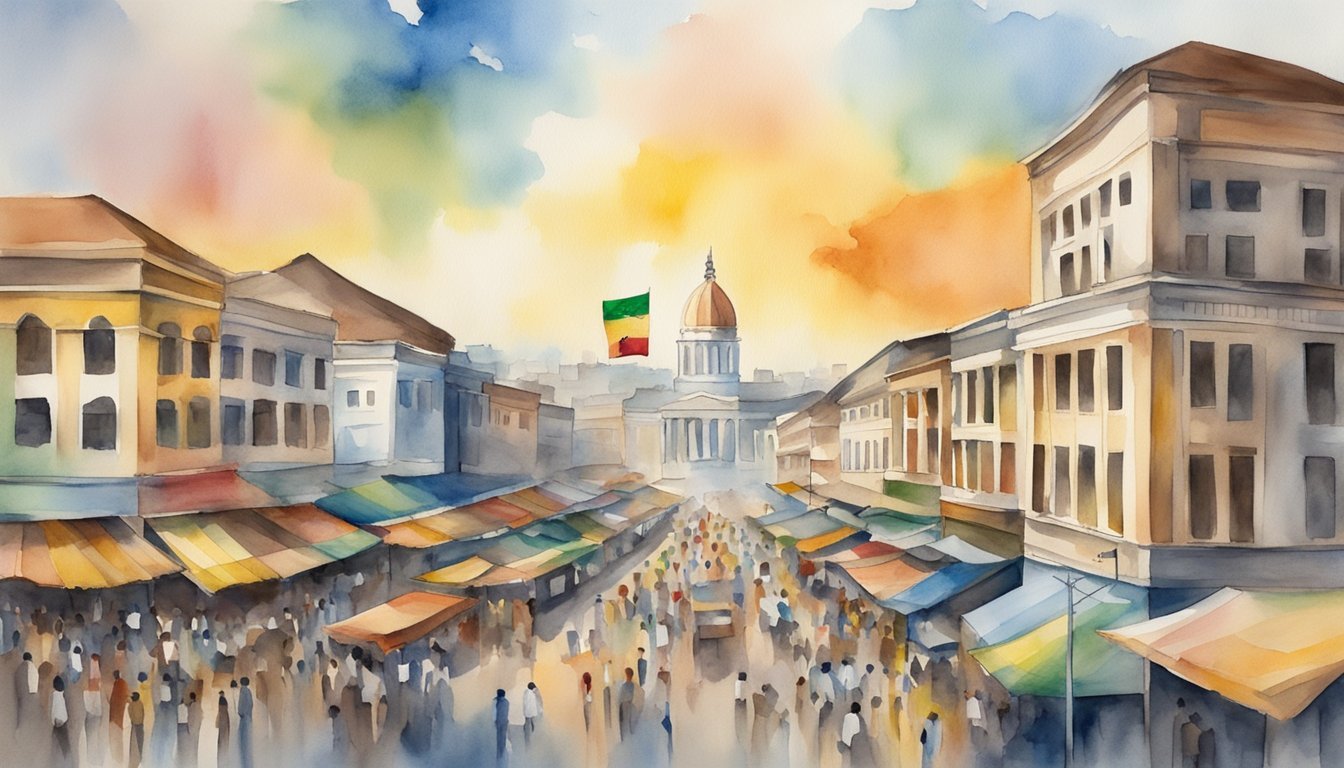Understanding Ghana
Historical Overview
Ghana, once known as the Gold Coast, gained its independence from Britain in 1957, making it the first country in sub-Saharan Africa to break free from colonial rule. Kwame Nkrumah, a prominent independence leader, became the country’s first Prime Minister and later President. Ghana has experienced numerous coups, political fluctuations, and economic challenges throughout its history. However, it has grown to be a stable democratic nation that enjoys relatively peaceful election processes and changes of power between different political parties, such as the National Democratic Congress and the New Patriotic Party. The current president is Nana Addo Dankwa Akufo-Addo.
Geography and Climate
Ghana, a West African country, is bordered by Ivory Coast, Burkina Faso, and Togo, and sits along the Gulf of Guinea and the Atlantic Ocean. Covering an area of 239,567 sq km, the country has a diverse landscape, ranging from coastal savannas to tropical rainforests. Prominent geographic features include Lake Volta, the world’s largest artificial lake, and Mount Afadjato, the highest peak in the country. Rivers such as the Black Volta, White Volta, and Pra also beautify Ghana’s terrain.
The country experiences a tropical climate, with distinct wet and dry seasons. The south tends to be wetter, while the north leans toward a Sahelian climate, with the Sahara Desert influencing its weather patterns.
Society and Culture
Ghana’s population is a tapestry of over 100 ethnic groups, with the Akan being the largest. Other major ethnic groups include the Ewe, Mole-Dagomba, and Ga-Dangme. English is the official language, though many indigenous languages such as Twi, Fante, and Ewe are widely spoken.
Ghana’s currency is the cedi, and its economy is centered on natural resources, with gold, oil, timber, and cocoa playing significant roles. Other key economic drivers include the export of minerals like bauxite, manganese, and diamonds. Despite the abundance of natural wealth, the country’s GNI per capita remains relatively low.
Religion plays a vital role in Ghanaian society, with Christianity being the predominant faith, followed by Islam. The people of Ghana are well known for their warm hospitality and rich cultural heritage that includes vibrant traditional clothing, music, dance, and art. The country is also home to numerous UNESCO World Heritage sites, notably the forts and castles built by European powers along the shoreline, testament to Ghana’s role in the trans-Atlantic slave trade.
In conclusion, Ghana is a diverse and culturally rich nation that stands out as a beacon of stability and democracy in West Africa. Its rich history, geography, and cultural tapestry make it an incredibly fascinating country to explore and learn about.
Ghana’s Governance and Economy

Political Structure
Ghana, a country located in West Africa along the Gulf of Guinea, is well-known for its stable democratic governance. The political structure of the Republic of Ghana, established with the constitution in 1992, is a presidential system. The President, as both Head of State and Head of Government, is elected every four years. Nana Addo Dankwa Akufo-Addo is the current leader, representing the New Patriotic Party (NPP). In addition to the presidency, Ghana’s Parliament ensures a balance of power, with two major political parties dominating: the National Democratic Congress (NDC) and the NPP.
Economic Sectors
Ghana is endowed with a wealth of resources and a diversified economy, boasting three main sectors:
- Agriculture: Renowned for its cocoa and gold production, Ghana is also a major player in the production of other cash crops such as oil palm, coffee, and rubber. The country’s rich forest resources support its timber industry.
- Industry: Ghana’s industrial sector focuses on oil and natural gas production, as well as mining gold, diamond, and iron. Manufacturing activities are also rising, including textiles, processed foods, and light assembly.
- Services: With an increasing population, the services sector in Ghana is expanding rapidly. This includes banking, telecommunications, and tourism.
The Ghanaian currency is the Cedi, and the country has experienced steady economic growth over the years. Notably, Ghana was the first sub-Saharan African nation to gain independence from British colonial rule in 1957, under the leadership of Kwame Nkrumah.
Educational System
Education in Ghana is a key government priority, with the official language, English, being the medium of instruction in schools. The country’s education system is structured as follows:
- Basic Education – Comprises kindergarten, primary, and junior high school.
- Secondary Education – Includes senior high schools, technical institutes, and vocational training centers.
- Tertiary Education – Consists of universities, polytechnics, and colleges.
Access to primary education remains a challenge in some rural areas; nevertheless, recent years have seen significant investments to improve educational infrastructure and reach the entire population.

